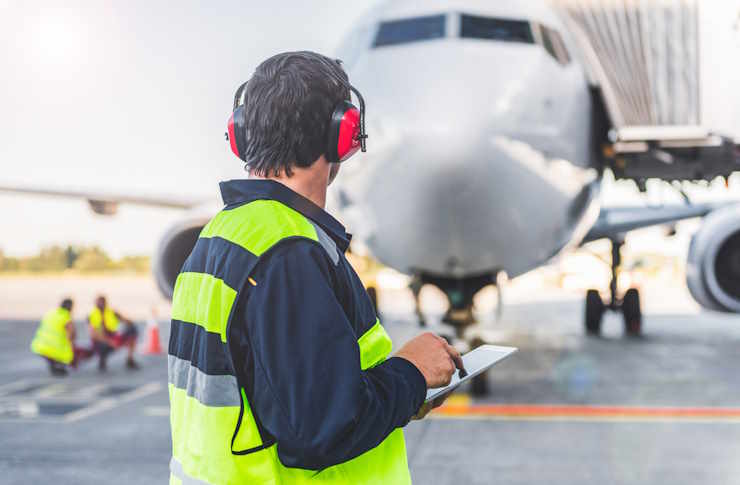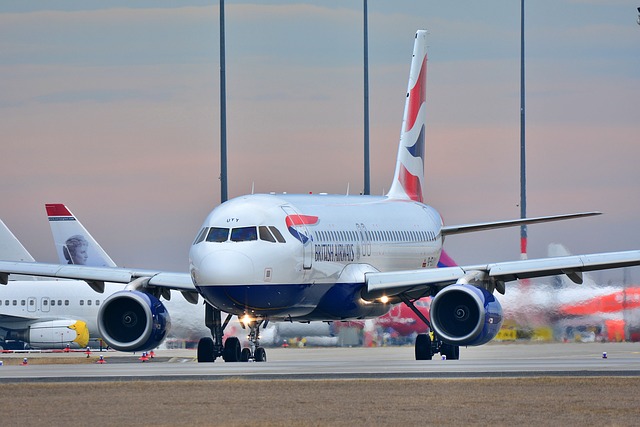English Proficiency Can Enhance Aviation Career Paths in Netherlands
Many individuals in the Netherlands may not realize the impact of English proficiency on their prospects within the aviation sector. As the industry continues to expand, roles ranging from flight operations to air traffic control become increasingly accessible. Knowledge of English can facilitate entry into these positions, aligning with the evolving demands of the aviation landscape.

The aviation industry in the Netherlands represents a significant sector of the country’s economy and transportation infrastructure. With Amsterdam Airport Schiphol serving as one of Europe’s major aviation hubs, the demand for qualified aviation professionals continues to grow. While technical skills are certainly important in this field, English language proficiency stands out as a particularly valuable asset that can significantly enhance career opportunities and advancement in Dutch aviation.
Understanding the Aviation Industry in the Netherlands
The Netherlands holds a strategic position in global aviation, with Schiphol Airport serving as one of Europe’s busiest and most important hubs. The Dutch aviation sector encompasses airlines like KLM (part of Air France-KLM), cargo operations, maintenance facilities, flight training schools, and air traffic management services. The industry directly employs over 100,000 people and contributes significantly to the Dutch economy.
The Netherlands’ geographical position makes it an ideal gateway between Europe and the rest of the world. This has led to the development of a robust aviation ecosystem that includes not only flight operations but also aerospace manufacturing, research and development, and aviation services. Companies like Fokker Services, maintenance providers, and numerous aviation support businesses form part of this diverse industry landscape.
Dutch aviation is also characterized by its strong focus on sustainability and innovation. The country is actively working toward reducing the environmental impact of aviation through research into sustainable aviation fuels, more efficient flight operations, and the development of cleaner aircraft technologies. This progressive approach creates unique opportunities for professionals who combine technical expertise with strong communication skills.
Importance of English Proficiency in Aviation Roles
English serves as the international language of aviation, mandated by the International Civil Aviation Organization (ICAO) for all air-ground communications. For pilots and air traffic controllers in the Netherlands, demonstrating English proficiency at ICAO Level 4 or higher is not optional—it’s a regulatory requirement. This standardization ensures that critical safety communications can be understood regardless of national origin.
Beyond regulatory requirements, English proficiency impacts daily operations across all aviation roles. Maintenance technicians must interpret technical manuals and documentation predominantly written in English. Cabin crew interact with international passengers, where clear communication is essential for service quality and safety procedures. Even administrative and management positions require English skills for international coordination, contract negotiations, and industry networking.
The level of English proficiency can directly influence career progression. Aviation professionals with advanced English skills often find themselves more competitive for promotions, international assignments, and specialized roles. They can more easily participate in international training programs, certification courses, and industry conferences that enhance their expertise and visibility within the global aviation community.
Overview of Potential Roles and Industry Growth Trends
The Dutch aviation sector offers diverse career paths for those with appropriate qualifications and language skills. Flight operations roles include pilots, flight dispatchers, and operations controllers—all positions where clear communication is critical for safety and efficiency. Technical positions encompass aircraft maintenance engineers, avionics specialists, and quality assurance personnel who must understand and apply complex technical information often provided in English.
Customer-facing roles such as cabin crew, ground handling staff, and passenger service agents benefit tremendously from strong English skills, as they regularly interact with international travelers. Behind the scenes, roles in aviation management, logistics, safety oversight, and regulatory compliance all require professionals who can effectively communicate in English with international stakeholders, partners, and regulatory bodies.
Growth trends in the Dutch aviation industry point to increased demand for specialized skills. Despite temporary setbacks from global events like the COVID-19 pandemic, long-term projections indicate continued expansion. Particular growth areas include sustainable aviation, digitalization of operations, unmanned aerial systems, and advanced air traffic management—all fields where international collaboration and English-language communication are essential.
English Language Training for Aviation Professionals
Aviation-specific English training differs significantly from general language courses. Programs focused on aviation English emphasize standardized phraseology, technical vocabulary, and communication procedures specific to aviation operations. These specialized courses help professionals meet the ICAO language proficiency requirements while preparing them for real-world communication scenarios they’ll encounter in their roles.
Several institutions in the Netherlands offer dedicated aviation English programs. These range from basic proficiency courses to advanced technical communication training. Some programs are integrated into broader aviation training curricula at institutions like the Dutch Aviation Academy, while others are offered as standalone courses by language schools specializing in technical and professional English.
Online and blended learning options have expanded accessibility to aviation English training. These flexible formats allow working professionals to improve their language skills while maintaining their current positions. Many courses incorporate simulation technology to create realistic scenarios where learners practice communication in contexts like pilot-controller interactions, emergency situations, or technical troubleshooting.
Career Advancement Through Language Certification
Formal certification of English proficiency provides tangible evidence of communication skills that employers value. For pilots and controllers, the ICAO Language Proficiency Rating is mandatory, with Level 4 (Operational) being the minimum standard and Level 6 (Expert) being the highest attainable level. Those achieving higher ratings often have advantages in hiring and advancement opportunities.
Beyond ICAO ratings, general English certifications like IELTS, TOEFL, or Cambridge English qualifications can also strengthen an aviation professional’s resume. These demonstrate broader language capabilities that are valuable for roles involving written communication, presentations, or extensive customer interaction. Many Dutch aviation employers look favorably upon candidates who can document their English proficiency through recognized certification programs.
The investment in English language training and certification typically yields significant returns in career opportunities and earning potential. Aviation professionals with documented advanced English skills often qualify for positions with greater responsibility, international scope, and higher compensation. The ability to communicate effectively across cultural and linguistic boundaries becomes increasingly valuable as professionals advance to leadership and management roles.
Practical Steps to Improve Aviation English Skills
Developing aviation English proficiency requires consistent practice and exposure. Beyond formal courses, professionals can enhance their skills through regular engagement with English-language aviation resources. Industry publications, technical manuals, aviation podcasts, and video content provide valuable exposure to relevant vocabulary and communication patterns.
Creating immersive learning environments accelerates language acquisition. This might include joining international aviation forums or professional groups, participating in English-language webinars or conferences, or finding language exchange partners within the industry. Some professionals benefit from shadowing colleagues with strong English skills or seeking mentorship from more experienced international team members.
Maintaining and improving English proficiency is an ongoing process rather than a one-time achievement. Regular practice, refresher courses, and periodic reassessment help ensure that skills remain sharp and current. As aviation terminology and procedures evolve, professionals must continually update their language capabilities to remain effective in their roles and competitive in their career advancement.
The combination of technical expertise and strong English communication skills creates powerful opportunities for career growth in the Dutch aviation industry. As the sector continues to evolve with new technologies and increasing international integration, those who can effectively bridge language barriers will find themselves well-positioned for success in this dynamic and essential field.




